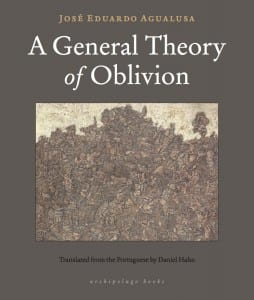The living and the rest by José Eduardo Agualusa
Angolan fiction
Original title –Os Vivos e os Outros
Translator – Daniel Hahn
Source – Review copy
I decided as the last Czech book for Czech Lit Month was a piece of magic realism, it would be fun to have another very different piece of Magic realism from Angolan writer José Eduardo Agualasa, a writer I have featured twice before on the blog and a writer I love to read he has such a rich imagination and this book sabout a group of writers that end up getting cut off on an island after a storm just appealed and as. The last book had an island in it. The two seemed good to review together. Agualasa has been on the Booker international list, so that was another reason I wanted to read this as he is a writer who could end up again on the list, and I am sure he must be near the top of some Nobel lists; it wouldn’t be a shock to me for him to win in the next decade.
-My character, Jude, is a brutally self-centred guy, narcis. sistic, machista, and misogynist.”
“You aren’t afraid readers will mix the two of you up?”
“You think I’m a jerk?”
Daniel laughs nervously.
“The narrator of this book has your name, he’s a writer.”
“I like exploring the possibility of being someone else, someone unlike me, while still being myself. I like confusing
readers, too.”
The conversation continues. Jude talks about the new wave of African writers, who are more concerned with being writers than with seeming African. He talks about cosmopolitanism, localism and identity. Finally Daniel asks the audience if they have any questions. One girl raises her hand.I agree with new African writers changiong how we view lit from Africa
As I said, the book follows seven days after a cyclone hits an island on the eve of its first Literary festival and the group of writers that had arrived early are cut off, not knowing what has happened to the mainland and unable to contact the outside world this is the framing device but what follows isn’t so much as the survival story but how a group of writers let their imaginations go wild. Even though they all seem to be African writers that had got their early from Angola, Mozambique and Nigeria there is a feeling that you may know some of these writers they are well-known writers not quite painted enough you can say oh that is Okri or so on but yes you feel as thou they are writers you have read well I do and the in-jokes about how African lit is viewed in the rest of the world ( I often feel guilty of this I must try and separate out writing as every country has a style of its own etc etc you know I am planning in the last few months of this year to add a few more titles from Africa) anyway there is a sense of them knowing each other a sense of being in the circuit together at book fairs, festival etc. But as they days go on some of them see the lines between reality and dreams and the works blurring as they days go by Have they lived or are they in limbo what happens when a group of imaginative writers is cut off and have no sense of the outside world around them? well, you find out here
.Jude smiles, amused at her distress. He tells her he spent years wearing shoes with platform soles. He had them custom-made, at an old cobbler’s in Lagos, who managed very skilfully to disguise their height. Whenever conference organisers asked him if he preferred to speak standing up, at a lectern, or sitting down, he always went for the second option. He also preferred being photographed sitting down. It took him years to get over his complex.
“You’re really not as short as all that,” says Luzia. “I’m seriousThis made me smile just as I thought of a famous actor very small that has shoes that make him taller.
This is the second book in recent years that has used a literary festival as a framing device for the story, but they go in different ways after that the other was Pola Olioixarac Mona. But this has more in common with a book like Lord of the flies except this is what happens when a bunch of writers with great imaginations are cut off and left to live without the everyday essential of internet phones contact with the outside world what happens when the mind drifts between the real and the uin=real between life and death what happened after the storm. This is a book that blurs those lines I was reminded of some of Antonio Lobo Antunes’s book The return of the Carvals that saw the orignal the great figures of Portugeese exploration reappear in Lisbon. But here we see the myths and legions of these writers growing over the day. An clever piece of magic realism that shows the power of the imaginagtion and how we can sometimes forget we are alive when there is. no one to tell you have survived something. Have you read this book ?
Winstons score – B soild book from a great writer I think it may have a chance of the booker longlist





